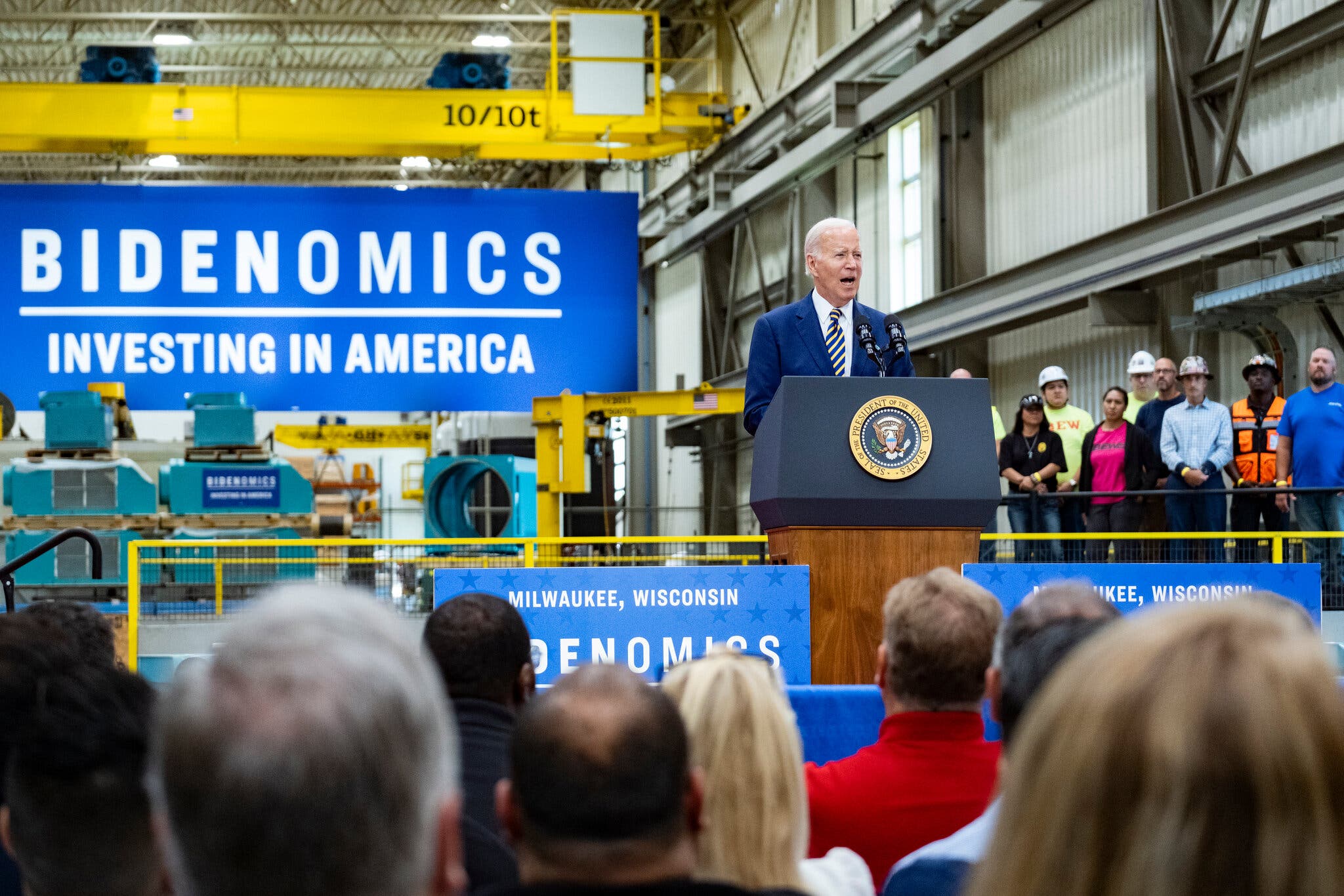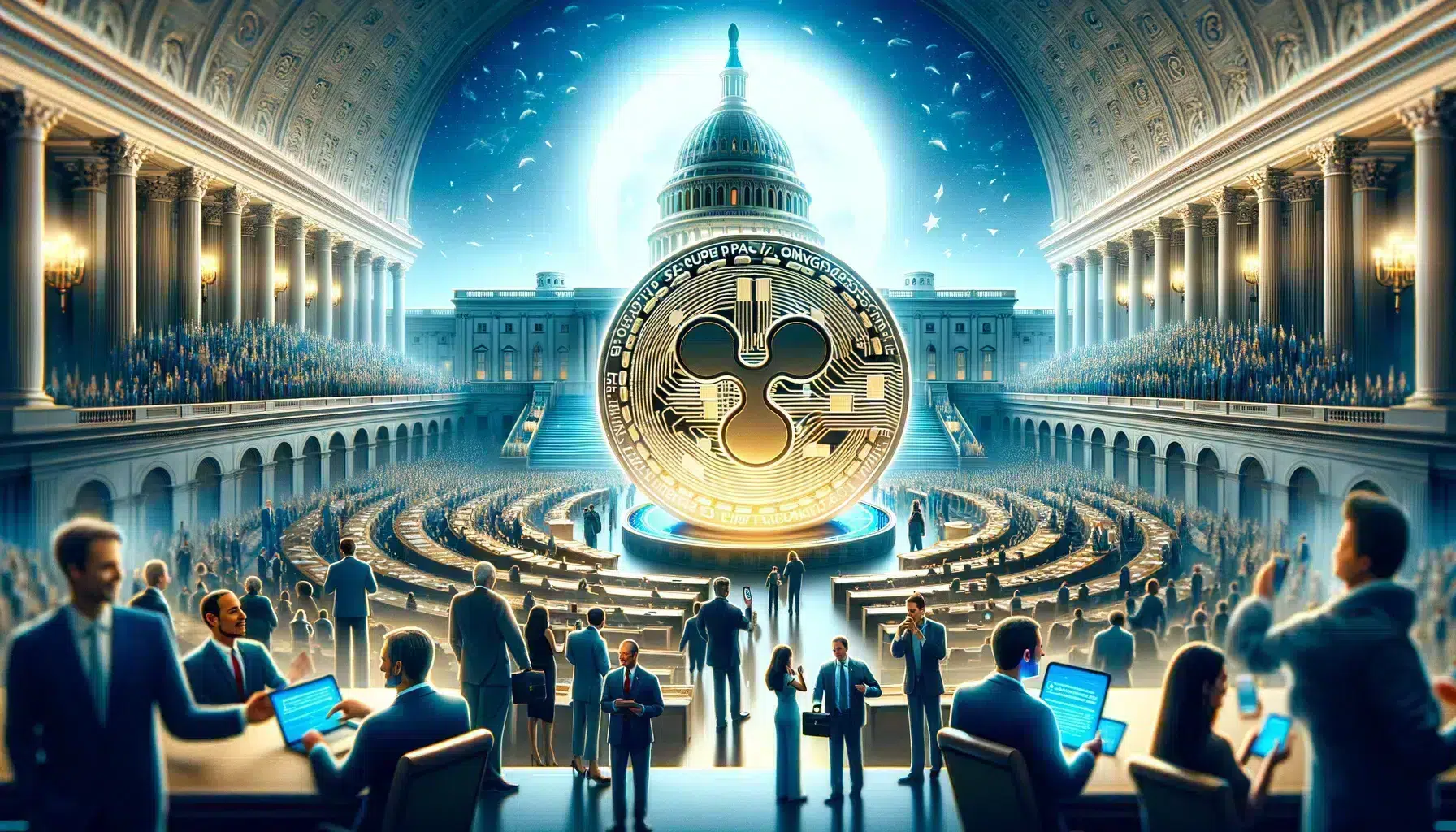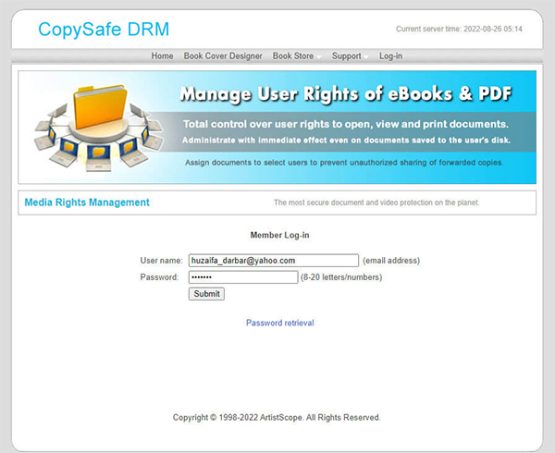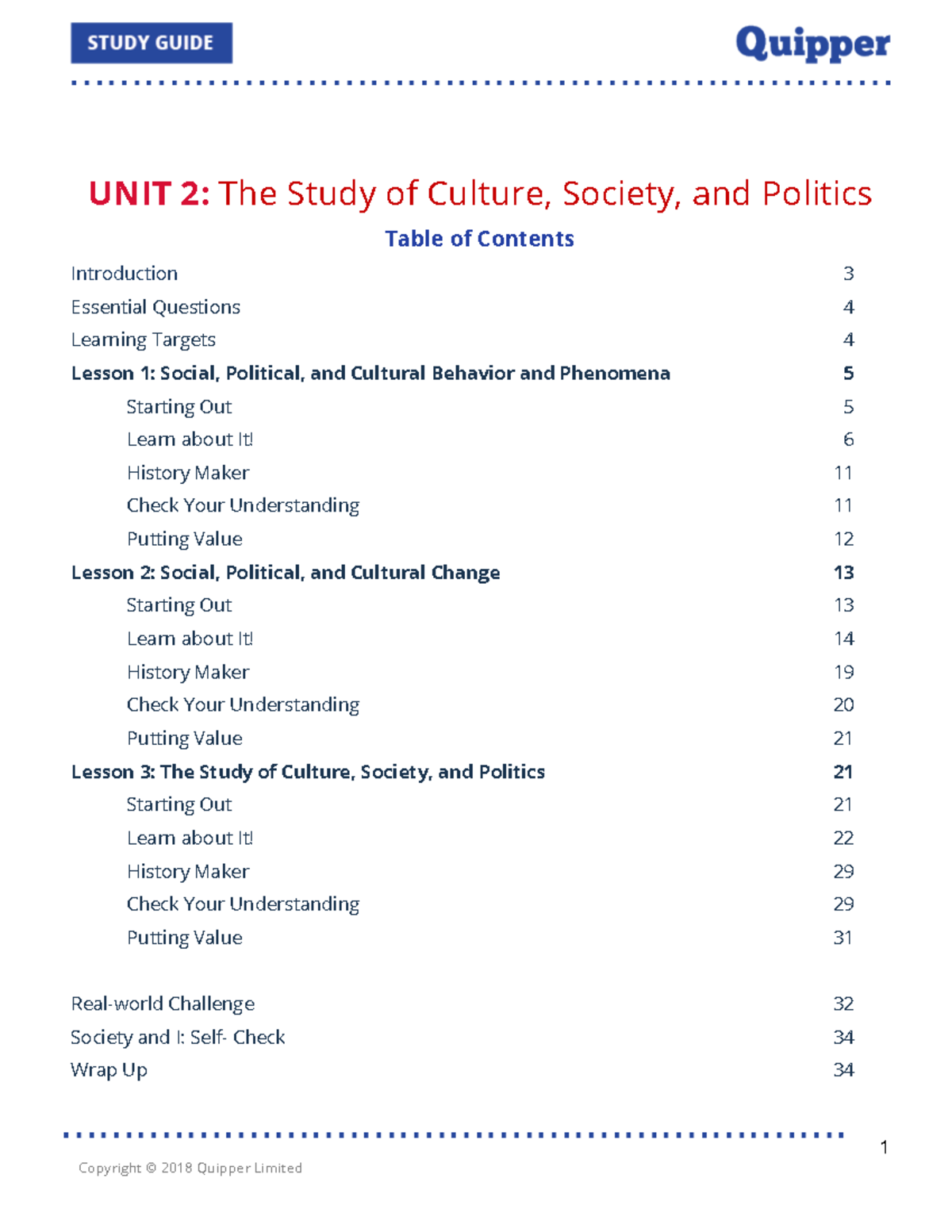Is Joe Biden Responsible For The Slowing US Economy? A Critical Analysis

Table of Contents
Biden's Economic Policies and Their Impact
President Biden's administration has implemented several significant economic policies, each with potential implications for the overall economic health of the nation. Let's examine some key initiatives and their effects.
Inflation and the American Rescue Plan
The American Rescue Plan (ARP), a $1.9 trillion economic stimulus package passed in March 2021, aimed to alleviate the economic fallout from the COVID-19 pandemic. However, critics argue that its substantial increase in government spending contributed significantly to inflationary pressures.
- Increased Government Spending: The ARP injected a massive amount of money into the economy, boosting demand at a time when supply chains were already strained. This surge in demand without a corresponding increase in supply led to a rise in prices.
- Supply Chain Disruptions: While the ARP didn't directly cause supply chain disruptions, the increased demand exacerbated existing bottlenecks, further fueling inflation.
- Demand-Pull Inflation: The ARP's stimulus checks and enhanced unemployment benefits increased consumer spending, leading to demand-pull inflation – a situation where high demand outstrips supply, driving up prices. The Bureau of Economic Analysis provides detailed data on consumer spending trends, which can be used to support this argument.
The relationship between the ARP and inflation remains a subject of ongoing debate among economists, with some arguing that the stimulus was necessary to prevent a deeper economic crisis, while others maintain it exacerbated inflationary pressures.
Impact of the Infrastructure Investment and Jobs Act
The Infrastructure Investment and Jobs Act, a bipartisan infrastructure bill, aims to modernize America's infrastructure through investments in roads, bridges, public transit, broadband internet, and more. While this promises long-term economic benefits, it also carries potential short-term economic risks.
- Job Creation: The bill is projected to create millions of jobs over the next decade, boosting economic activity and potentially mitigating the effects of a slowing economy. However, realizing these projections depends on efficient project implementation and management.
- Improved Infrastructure: Modernized infrastructure can improve efficiency, reduce transportation costs, and enhance productivity across various sectors. These are long-term benefits that may not immediately offset current economic slowdowns.
- Inflationary Pressures: Similar to the ARP, the infrastructure bill's increased government spending could exert upward pressure on prices, potentially worsening existing inflationary challenges. Analysis of the bill's projected costs and potential cost overruns is crucial in evaluating its inflationary impact.
Energy Policy and its Economic Repercussions
President Biden's energy policies, including a pause on new oil and gas leases on federal lands, have faced criticism for contributing to higher energy prices.
- Gasoline Prices: Reduced domestic oil production, combined with global events, has contributed to elevated gasoline prices, impacting consumer spending and overall economic growth.
- Energy Independence: Critics argue that the administration's policies have reduced US energy independence, making the nation more vulnerable to global energy price fluctuations.
- Job Losses: The shift away from fossil fuels has resulted in job losses in the energy sector, although the administration points to job creation in renewable energy as a counterbalance. Data on job creation in renewable energy versus job losses in fossil fuels is essential for a comprehensive analysis.
External Factors Influencing the US Economy
It's crucial to acknowledge that the slowing US economy is not solely attributable to domestic policies. Several external factors have played a significant role.
Global Economic Slowdown
The global economy is facing numerous challenges, including:
- The War in Ukraine: The war has disrupted global supply chains, increased energy prices, and fueled inflation worldwide, impacting the US economy indirectly.
- Supply Chain Issues: Pre-existing supply chain disruptions, exacerbated by the pandemic and the war in Ukraine, continue to constrain economic growth. Data on global shipping costs and container availability can illustrate the impact of these issues.
- Inflationary Pressures: Global inflation is a major contributing factor to the slowing US economy, independent of any specific domestic policies.
The Lingering Effects of the COVID-19 Pandemic
The COVID-19 pandemic continues to exert its influence on the US economy:
- Labor Shortages: The pandemic disrupted the labor market, leading to significant labor shortages in various sectors, impacting productivity and economic growth.
- Lingering Supply Chain Issues: The pandemic's disruption to global supply chains persists, causing delays and increasing costs. The impact of this on various sectors of the US economy should be considered.
Counterarguments and Alternative Perspectives
It's important to consider counterarguments and alternative perspectives:
Arguments Supporting Biden's Economic Policies
Some argue that Biden's policies are necessary for long-term economic health:
- Social Safety Nets: Supporters point to the strengthening of social safety nets as crucial for protecting vulnerable populations and stimulating economic activity.
- Job Creation: Proponents highlight the potential for job creation through investments in infrastructure and clean energy.
- Long-Term Infrastructure Investments: Investing in infrastructure is considered a vital step for boosting long-term economic growth and competitiveness.
Economic Indicators Beyond Biden's Control
Attributing economic performance solely to the current administration is an oversimplification. Many factors outside the President's direct control significantly influence the economy.
Conclusion
Analyzing whether Joe Biden is responsible for the slowing US economy requires a nuanced understanding of complex interacting factors. While some of President Biden's policies, such as the ARP and the infrastructure bill, may have contributed to inflation and other economic challenges, it's impossible to isolate their impact completely from external factors like the global economic slowdown, the ongoing effects of the COVID-19 pandemic, and geopolitical events. Assigning sole responsibility for the current economic state to any single factor is an oversimplification. Continue researching the issue and forming your own informed opinion on the complex relationship between President Biden's policies and the current state of the US economy. Understanding the interplay between Biden's economic policies and the broader global context is crucial for a comprehensive assessment of the slowing US economy.

Featured Posts
-
 Bio Based Scholen Afhankelijk Van Een Dieselgenerator
May 02, 2025
Bio Based Scholen Afhankelijk Van Een Dieselgenerator
May 02, 2025 -
 Sabrina Carpenter Fortnite Event Confirmed Date And Time
May 02, 2025
Sabrina Carpenter Fortnite Event Confirmed Date And Time
May 02, 2025 -
 Us Presidents Remarks On Trump And Ripple Send Xrp Higher
May 02, 2025
Us Presidents Remarks On Trump And Ripple Send Xrp Higher
May 02, 2025 -
 Jeffrey Dean Morgans Negan In Fortnite An Interview
May 02, 2025
Jeffrey Dean Morgans Negan In Fortnite An Interview
May 02, 2025 -
 Ps 5 Vs Xbox Series X S A Detailed Look At Us Sales Figures
May 02, 2025
Ps 5 Vs Xbox Series X S A Detailed Look At Us Sales Figures
May 02, 2025
Latest Posts
-
 This Country A Travelers Handbook
May 02, 2025
This Country A Travelers Handbook
May 02, 2025 -
 From Celeb Traitors To A New Bbc Show The Cooper Siblings Next Move
May 02, 2025
From Celeb Traitors To A New Bbc Show The Cooper Siblings Next Move
May 02, 2025 -
 Actress Daisy May Cooper Announces Engagement To Boyfriend Anthony Huggins
May 02, 2025
Actress Daisy May Cooper Announces Engagement To Boyfriend Anthony Huggins
May 02, 2025 -
 Cooper Siblings Next Bbc Venture Following Celeb Traitors
May 02, 2025
Cooper Siblings Next Bbc Venture Following Celeb Traitors
May 02, 2025 -
 Understanding This Country Politics Economy And Society
May 02, 2025
Understanding This Country Politics Economy And Society
May 02, 2025
